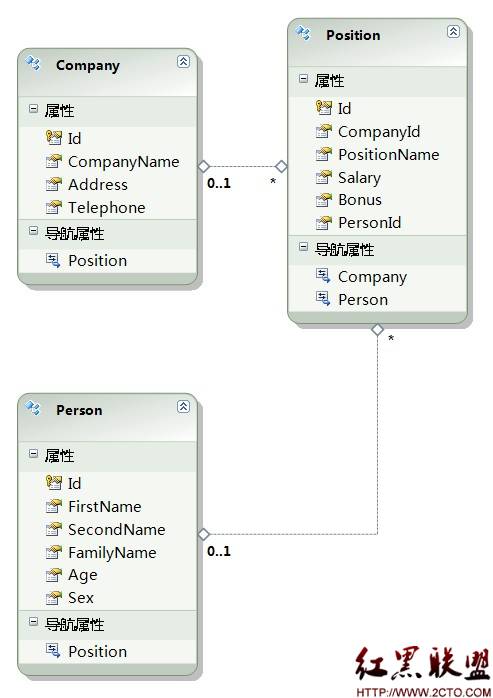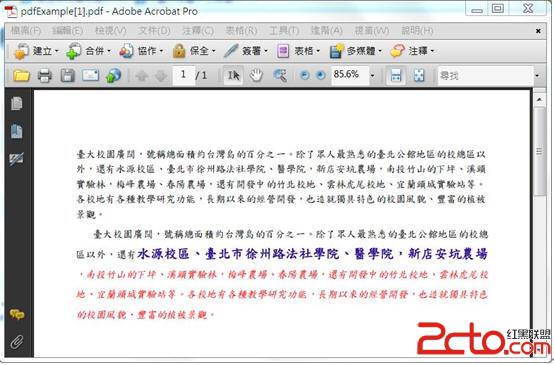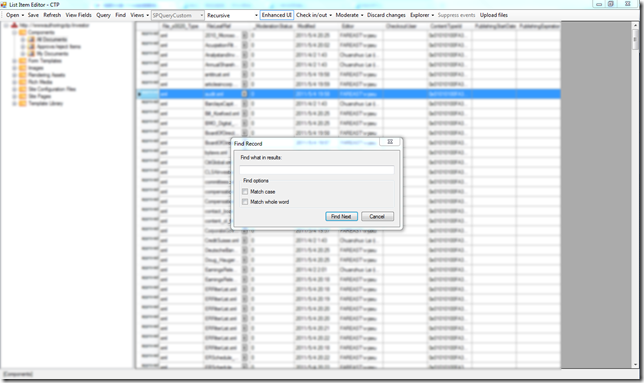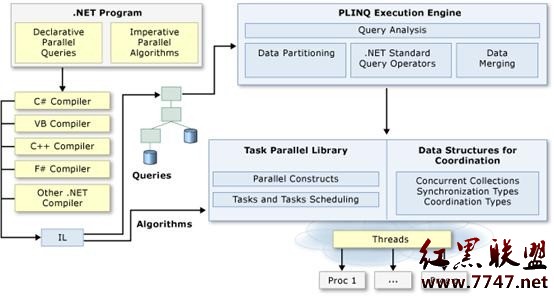.NET基础篇——Entity Framework数据转换层通用类
在实现基础的三层开发的时候,大家时常会在数据层对每个实体进行CRUD的操作,其中存在相当多的重复代码。为了减少重复代码的出现,通常都会定义一个共用类,实现相似的操作,下面为大家介绍一下Entity Framework时常用到的通用类。
首先在数据库建立起几个关联表:Person、Company、Position,三个实体之间通过导航属性进行相互引用。

下面为大家分别介绍以泛型实现的 Create、Read、Update、Delete 操作:
1. Create
在ObjectContext类之中,早已经为大家预定了一个Create 的操作 AddObject:
void ObjectContext.AddObject(entitySetName string,object entity)
void ObjectSet<T>.AddObject(T entity)
1 public int Add<T>(T entity) where T : EntityObject
2 {
3 int changedCount = 0;
4 using (TransactionScope scope = new TransactionScope(TransactionScopeOption.Required))
5 {
6 try
7 {
8 using (BasicArchitectureEntities context = new BasicArchitectureEntities())
9 {
10 context.AddObject(typeof(T).Name, entity);
11 changedCount = context.SaveChanges();
12 if (changedCount > 0)
13 context.AcceptAllChanges();
14 scope.Complete();
15 }
16 }
17 catch (Exception ex)
18 { ........ }
19 }
20 return changedCount;
21 }
从下面的测试可以看到,ObjectContext.AddObject(entitySetName string,object entity)已相当成熟,它不但可以加入单个实体,也可通过导航属性,一次性加入多个关联实体。
1 static void Main(string[] args)
2 {
3 BaseCommand command = new BaseCommand();
4 //建立关联实体
5 Company company = new Company() { CompanyName = "Sun" ,Address="Beijing",Telephone="010-87654321"};
6 Position position = new Position() { PositionName = "Project Manager", Salary = 15000.00, Company = company };
7 //通过Add<T>同时加入实体对象company与position
8 int n=command.Add<Position>(position);
9
10 Console.ReadKey();
11 }
若要使用批量插入,只要在AddObject方法前多加一个重复语言即可,在此就不再多作解释了。
1 public int AddList<T>(List<T> entityList) where T : EntityObject
2 {
3 int changedCount = 0;
4 using (TransactionScope scope = new TransactionScope(TransactionScopeOption.Required))
5 {
6 try
7 {
8 using (BasicArchitectureEntities context = new BasicArchitectureEntities())
9 {
10 foreach (T entity in entityList)
11 context.AddObject(typeof(T).Name, entity);
12 changedCount = context.SaveChanges();
13 if (changedCount > 0)
14 context.AcceptAllChanges();
15 scope.Complete();
16 }
17 }
18 catch (Exception ex)
19 { ....... }
20
补充:Web开发 , ASP.Net ,




